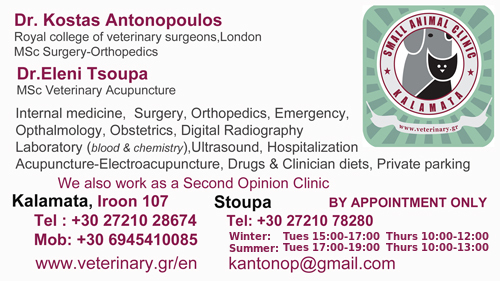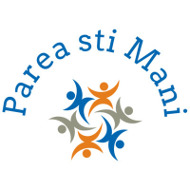'Flu season 2015/16
Feb 9th: Health Ministry calls on schools to isolate students with flu Students displaying symptoms of the flu should be kept in a separate area where they cannot come into contact with other students and staff, while a parent or guardian is notified to take them home, the Health Ministry has recommended. Responding to fears of a particularly bad bout of influenza this season, during which 60 people have already died and 252 were hospitalized in intensive care, the Health Ministry called on schools to take action to prevent the spread of the H1N1 virus, also known as swine flu. Ekathimerini
 Jan 30th 2016 : Free anti-virals for high-risk groups** :Health Minister Andreas Xanthos has decided that anti-viral drugs (tamiflu and relenza) should be supplied FREE from private pharmacies, in an effort to stem the flu wave in Greece. Because of the outbreak of the epidemic, the Minister is extending an earlier decision which related to the administration of these formulations containing the active substance oseltamivir and zanamiriri, respectively, until June 30 . Tharros
Jan 30th 2016 : Free anti-virals for high-risk groups** :Health Minister Andreas Xanthos has decided that anti-viral drugs (tamiflu and relenza) should be supplied FREE from private pharmacies, in an effort to stem the flu wave in Greece. Because of the outbreak of the epidemic, the Minister is extending an earlier decision which related to the administration of these formulations containing the active substance oseltamivir and zanamiriri, respectively, until June 30 . Tharros
 A 37-year old, infected with the H1N1virus, is in the Intensive Care Unit of Kalamata General Hospital, and a new appeal has been issued to people belonging to high-risk groups to be vaccinated against 'flu, even today. We are still weeks from the expected peak of the epidemic wave of seasonal influenza, and already the Intensive Care Units have had113 patients with severe complications of influenza. On data so far, 2015/16 looks likely to be the worst season for 'flu deaths since the 2010/11 'flu season.
A 37-year old, infected with the H1N1virus, is in the Intensive Care Unit of Kalamata General Hospital, and a new appeal has been issued to people belonging to high-risk groups to be vaccinated against 'flu, even today. We are still weeks from the expected peak of the epidemic wave of seasonal influenza, and already the Intensive Care Units have had113 patients with severe complications of influenza. On data so far, 2015/16 looks likely to be the worst season for 'flu deaths since the 2010/11 'flu season.
The vast majority of patients with complications were infected with the H1N1 virus, covered by this year's vaccine.Mr. Tsiodras advises people who belong to vulnerable population groups (elderly over 60, patients with chronic diseases, immunosuppression, metabolic diseases, pregnant women, nursing mothers, obese children who take aspirin long-term) to be vaccinated even now. Anyone in these groups with symptoms should contact their doctor to begin treatment with antiviral medicines, within 48 hours.
"For the rest, what you need is rest, plenty of fluids, hand hygiene and covering nose and mouth when sneezing and coughing and stay home as long as we are sick,"
**HIGH RISK GROUPS:- Persons aged 60 years and older, children and adults who have one or more of the following aggravating factors or chronic conditions: Asthma or other chronic lung disease, heart disease with severe hemodynamic disorders, immunosuppression (congenital or acquired due to disease or treatment), organ transplantation, sickle cell disease (and other hemoglobinopathies), diabetes or other chronic metabolic disease, chronic kidney disease, neuromuscular diseases, pregnant. They belong, also, pregnant women, regardless of age pregnancy, the postpartum, breastfeeding, people with a Body Mass Index (BMI)> 40 kg / m2, children who take aspirin long term (disease Kawasaki, rheumatoid arthritis and others)
Also regarded as high risk - persons who are in close contact with children 6 months or caring for people with underlying disease, who are at increased risk of complications from influenza, the closed populations (staff and internal students high schools - high schools, military and police schools, special schools or colleges, inmates and staff of institutions). Beneficiaries antivirals are workers in health care facilities (health professionals and other employees).
November 2014: Some reminders about Flu published in Tharros 
Flu a is an acute respiratory illness caused by influenza viruses. There are three types of influenza viruses, the A, B and C**
When is the flu season in Greece? In Greece, the influenza season spans from October to April, with flare activity between December and February
How do I know if I am suffering from flu? It might be flu if you have sudden fever, respiratory symptoms (runny nose, cough), intense muscle pains, and it occurs during the winter months
How is influenza diagnosed? Usually doctors make a diagnosis based on the symptoms. However, it is difficult to distinguish the flu from other viral infections of the respiratory system, and only special laboratory tests can clarify the diagnosis. In most cases it is not necessary to make such examinations, as the results will not affect the treatment of the patient
What should I do if I get sick? Basic hygiene is a fairly effective way to protect ourselves and those around us from the flu. For this reason .......
* Avoid close contact with others
* Avoid coming into contact with people who are sick
* Keep away from others when you are sick to protect them and not get sick
* Stay home when you are sick. When you are sick avoid, if possible, going to work, school, family or social gatherings, crowded places and public transportation
* Cover your mouth and nose with a tissue when coughing or sneeze
* Wash your hands often. Frequent hand washing reduces the spread of viruses
* Avoid touching your eyes, nose or mouth.
How do you treat the flu? As with most viruses, you need rest, plenty of fluids, avoid smoking, take painkillers and antipyretics to treat muscle pain, but antibiotics have no effect on viruses. Do not give aspirin to children and teenagers, especially when they have a fever, without consulting a doctor.
Are there medicines for flu? Yes, antivirals but they can only reduce the duration of uncomplicated influenza illness by approximately one day, and then, only if administered early, ie within the first two days of onset of symptoms. They may also prevent serious flu complications, like pneumonia. However, most patients with mild symptoms improve within 3-4 days and you do not need to take antivirals
How can I protect myself from the flu? So far the main way how to protect oneself from the flu is early vaccination. No drug is a substitute for influenza vaccination, which is the main measure for preventing influenza
When should I get a vaccination ? The vaccination should be done every year during the period from October to November. It takes about two weeks from vaccination, for the body to generate protective antibodies to the flu. Although the best time for vaccination is the period October -November, one can be vaccinated later, if you belong to vulnerable groups and for some reason were not vaccinated on time
How effective is the flu vaccine? When the influenza viruses in the vaccine are similar to viruses circulating during this period, it is very effective. Studies have shown it protects from 70 -90% of people vaccinated from getting the disease.
**Human inflenza A and B viruses cause seasonal epidemics of disease. Influenza type C infections cause a mild respiratory illness and are not thought to cause epidemics.
Influenza A (H1N1), A (H3N2), and one or two influenza B viruses (depending on the vaccine) are included in each year's influenza vaccine. The seasonal flu vaccine does not protect against influenza C viruses. In addition, flu vaccines will NOT protect against infection and illness caused by other viruses that also can cause influenza-like symptoms. There are many other non-flu viruses that can result in influenza-like illness that spread during flu season.
















 Together in the Mani
Together in the Mani